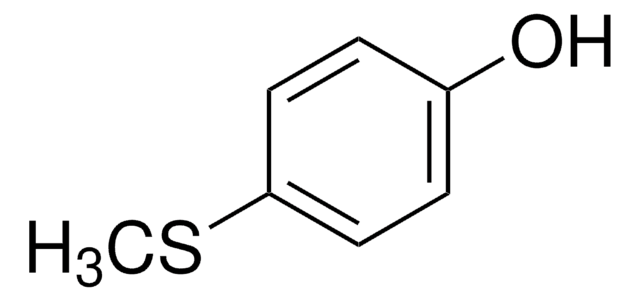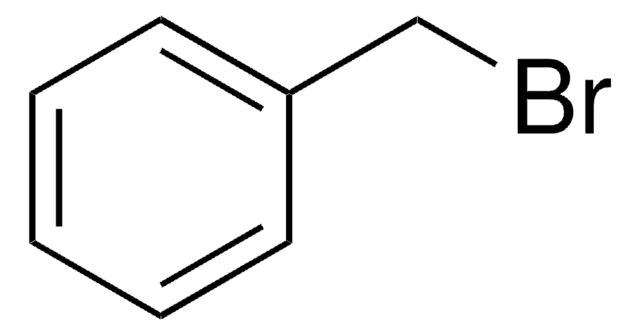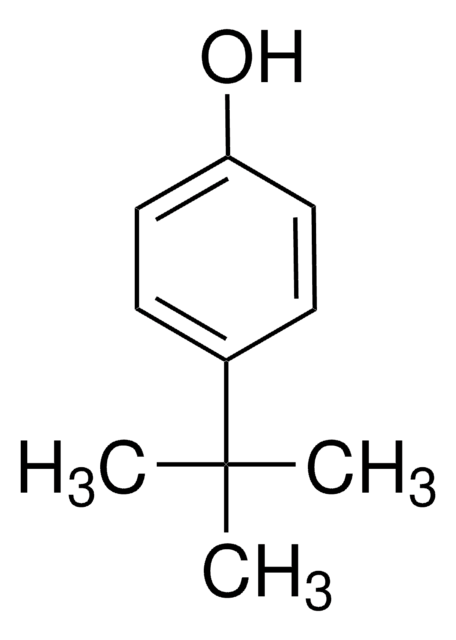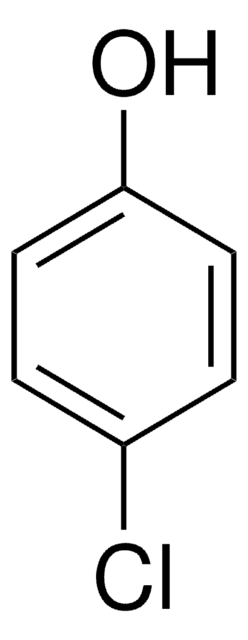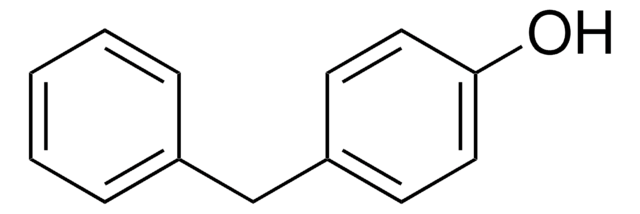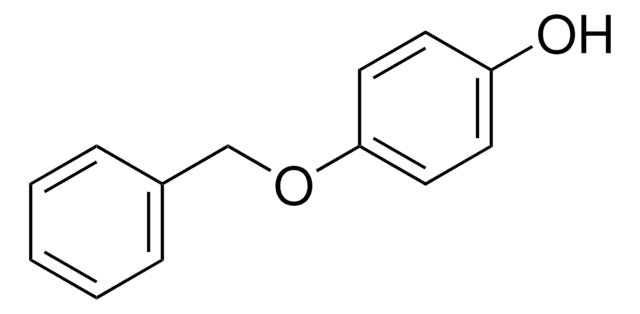All Photos(1)
About This Item
Linear Formula:
CH3(CH2)6OC6H4OH
CAS Number:
Molecular Weight:
208.30
MDL number:
UNSPSC Code:
12352100
PubChem Substance ID:
NACRES:
NA.22
Recommended Products
General description
4-(Heptyloxy)phenol is an steroidogenic factor-1 (SF-1) agonist. The effect of 4-(heptyloxy)phenol on the secretion of estradiol and oxytocin (OT) from granulosa cells was studied.
Application
4-(Heptyloxy)phenol was used to treat bovine luteal cells.
Signal Word
Warning
Hazard Statements
Precautionary Statements
Hazard Classifications
Eye Irrit. 2 - Skin Irrit. 2 - STOT SE 3
Target Organs
Respiratory system
Storage Class Code
11 - Combustible Solids
WGK
WGK 3
Flash Point(F)
Not applicable
Flash Point(C)
Not applicable
Personal Protective Equipment
dust mask type N95 (US), Eyeshields, Gloves
Certificates of Analysis (COA)
Search for Certificates of Analysis (COA) by entering the products Lot/Batch Number. Lot and Batch Numbers can be found on a product’s label following the words ‘Lot’ or ‘Batch’.
Already Own This Product?
Find documentation for the products that you have recently purchased in the Document Library.
J Mlynarczuk et al.
Theriogenology, 81(7), 877-886 (2014-03-01)
The orphan receptor steroidogenic factor-1 (SF-1) is involved in the regulation of ovarian steroidogenesis in cows. It is hypothesized that estrogen-like chlorinated compounds might affect SF-1, and thus impair the function of the ovary. Bovine luteal cells from the estrous
J Mlynarczuk et al.
Animal reproduction science, 138(1-2), 74-81 (2013-03-14)
The orphan receptor Steroidogenic Factor-1 (SF-1, NR5A1), a member of the nuclear receptor superfamily, is present in fetal and adult steroidogenic tissues and also participates in the regulation of ovarian function. In this study, the expression levels of SF-1 mRNA
Richard J Whitby et al.
Journal of medicinal chemistry, 54(7), 2266-2281 (2011-03-12)
The crystal structure of LRH-1 ligand binding domain bound to our previously reported agonist 3-(E-oct-4-en-4-yl)-1-phenylamino-2-phenyl-cis-bicyclo[3.3.0]oct-2-ene 5 is described. Two new classes of agonists in which the bridgehead anilino group from our first series was replaced with an alkoxy or 1-ethenyl
Markus A Lill et al.
Journal of medicinal chemistry, 48(18), 5666-5674 (2005-09-02)
We investigated the influence of induced fit of the androgen receptor binding pocket on free energies of ligand binding. On the basis of a novel alignment procedure using flexible docking, molecular dynamics simulations, and linear-interaction energy analysis, we simulated the
Our team of scientists has experience in all areas of research including Life Science, Material Science, Chemical Synthesis, Chromatography, Analytical and many others.
Contact Technical Service